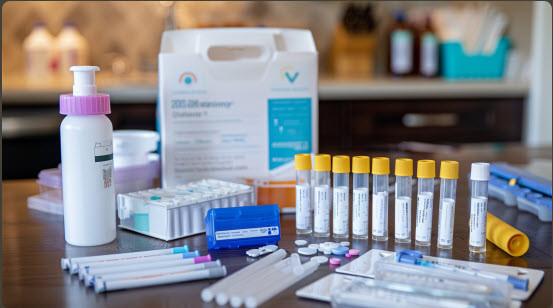Doctors often remind their patients to come in once a year to undergo a cholesterol test. Many of us just smile and nod, while some do intend to have the test done yearly. But most people either forget or purposely don’t go because they don’t see what the big deal is about having their cholesterol levels checked.
Table of Contents
So why is this test so important? The simple answer is that it can help you prevent heart attacks, strokes, and other cardiovascular problems. It can let you know whether or not you need to make changes to your current lifestyle so that you can be healthier in YOUR future.

Home Cholesterol Test Kits Available
One of the reasons people give for not undergoing a cholesterol screening test is because of the inconvenience of having to go to the doctor or hospital to have it done. Today, however, you can actually perform the test right in your own home, thanks to the handy cholesterol testing kits that are now available in pharmacies everywhere.
These home cholesterol test kits are not expensive either, so it won’t be a huge financial burden to get each member of your family checked once a year. They are also very easy to use, and you don’t need to have any medical background at all to perform the test. These test kits have been thoroughly tested and are quite reliable, providing highly accurate results.
Another way of doing the cholesterol test at home is to visit websites of pathology laboratories that take samples and send the results back to you. What you have to do is take some of your blood and put it in a sealed container that they provide and then mail the sample to them along with a stamped self-addressed envelope.
They will run the tests in their laboratory and send the detailed results back to you in a day or two. This method is convenient and not as time-consuming as a visit to the doctor.
Consequences of Inaction
Now that these handy testing methods are available, there is no longer any reason for you to put off cholesterol screening indefinitely. As you keep postponing your testing, your cholesterol levels may be rising beyond the healthy range and you may already be in serious trouble without even realizing it.
Ignoring a potential health problem will not make it go away and will probably lead to bigger problems in the future. Unfortunately, the consequences of our modern lifestyle for many people are the result of lifestyle diseases such as type 2 diabetes and heart disease.
Advancements in medical technology are making options such as these home test kits available to the greater community. So, if modern living is putting our health at risk, the least we can do is take advantage of this technology when it benefits us!
Home testing kits for cholesterol have been available since the early 1990s but it is only now that people are starting to take advantage of this device to improve their health. Don’t be the last to try it — get tested now.
Once you have the results you can make informed decisions regarding your health and future. Don’t ignore possible problems. Accept responsibility for your health and do what is necessary to maintain and hopefully improve it.

If you don’t want to consult a medical practitioner or want to find out more about your ailment(s) visit the free Symptom Checker website. This should not be construed as fact – it is a guide (but a very good one, actually).
FAQ:
Q: What are the recommended cholesterol levels?
Ideal levels vary depending on individual risk factors. Consult a healthcare professional for personalized guidance.
Q: Can I lower my cholesterol naturally?
Absolutely! Lifestyle changes play a crucial role in managing cholesterol levels.
Q: What if my cholesterol is high? Don’t panic!
Work with your doctor to develop a personalized management plan.
Remember, prioritizing regular cholesterol testing empowers you to make informed decisions about your health. By understanding the risks and taking proactive measures, you can unlock a healthier future, free from the silent threat of unchecked cholesterol. Let’s start the conversation, get tested, and take charge of our cardiovascular well-being together.
If you need any further information or assistance with this article, don’t hesitate to Contact Us




















